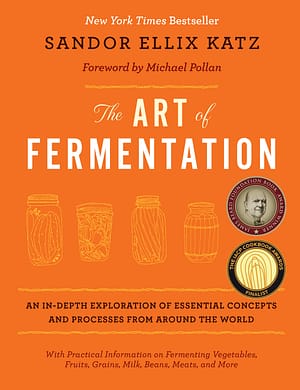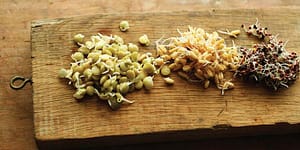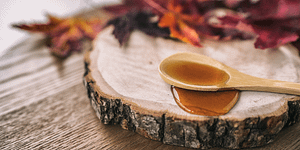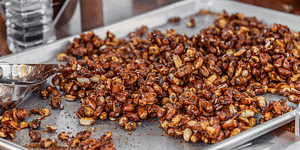Making the Best Sauerkraut on Earth in Four Simple Steps: Chop, Salt, Pack, Wait

Make your own delicious, healthy, probiotic sauerkraut! Four easy steps are all you need to turn fresh garden veggies into a long-lasting, tangy, pungent condiment.
The following excerpt is from The Art of Fermentation by Sandor Ellix Katz. It has been adapted for the web.
4 Simple Steps to Making Sauerkraut
The English language does not have its own word for fermented vegetables. It would not be inaccurate to describe fermented vegetables as “pickled,” but pickling covers much ground beyond fermentation.
Pickles are anything preserved by acidity. Most contemporary pickles are not fermented at all; instead they rely upon highly acidic vinegar (a product of fermentation), usually heated in order to sterilize vegetables, preserving them by destroying rather than cultivating microorganisms.
“For pickles, fermentation was the primary means of preservation until the 1940s, when direct acidification and pasteurization of cucumber pickles was introduced,” writes Fred Breidt of the USDA.
Vegetable Ferments

But of course, everything I’ve learned about sauerkraut and kimchi reveal that neither of them constitutes a homogeneous tradition.
They are highly varied, from regional specialties to family secrets.
Nonetheless, certain techniques underlie both (and many other related) traditions, and my practice is a rather free-form application of these basic techniques rather than an attempt to reproduce any particular notion of authenticity.
Steps for Fermenting Vegetables
In a nutshell, the steps I typically follow when I ferment vegetables are:
- Chop or grate vegetables.
- Lightly salt the chopped veggies (add more as necessary to taste), and pound or squeeze until moist; alternatively, soak the veggies in a brine solution for a few hours.
- Pack the vegetables into a jar or other vessel, tightly, so that they are forced below the liquid. Add water, if necessary.
- Wait, taste frequently, and enjoy!
Of course, there is more information and nuance, but really, “Chop, Salt, Pack, Wait” is what most of it amounts to.
Recommended Reads
Recent Articles
What’s so great about oyster mushrooms? First, you can add them to the list of foods that can be grown indoors! They are tasty, easy to grow, multiply fast, and they love a variety of substrates, making oyster mushrooms the premium choice. The following is an excerpt from Fresh Food from Small Spaces by R. J.…
Read MoreWant to start your own medicinal herb garden? Passionflower, lemon balm, and goldenseal are great places to begin! These herbs are jam-packed with medicinal properties and easy to grow in a majority of climates.
Read MoreCraving something sweet? These delicious maple roasted nuts are the perfect treat to help you push through those end-of-winter blues. The following is an excerpt from Full Moon Feast by Jessica Prentice. It has been adapted for the web. The Magic of Maple: A Rich History Following the Hunger Moon, just before the first thaw…
Read More







